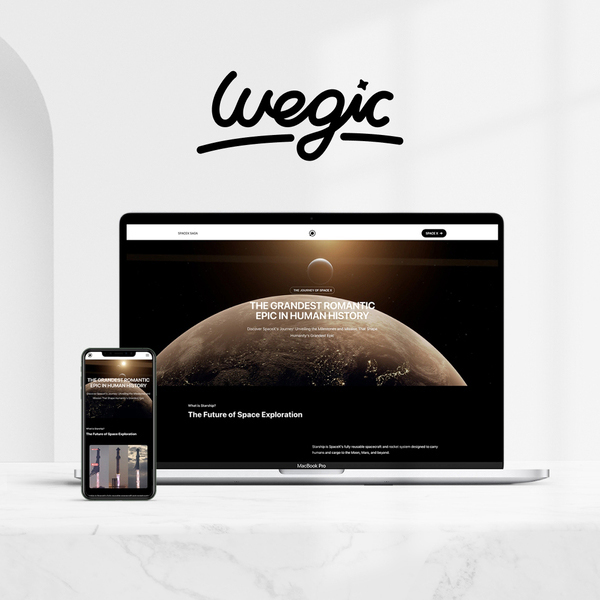How the Complete 2025 Web Development Bootcamp Works
the Complete 2025 Web Development Bootcamp Solutions
the Complete 2025 Web Development Bootcamp
In today’s digital age, having a website is essential for any business or individual looking to establish an online presence. Thankfully, there are a variety of platforms available that make building a website easier than ever before. Whether you’re a beginner looking to create a simple personal site or an experienced developer looking to build a complex e-commerce store, there are options for everyone. In this article, we’ll explore some of the best sites for building a website.

the Complete 2025 Web Development Bootcamp Tips and Tricks
the Complete 2025 Web Development Bootcamp
First and foremost, it’s important to understand the different types of web hosting available. The most common types of web hosting are shared hosting, VPS (Virtual Private Server) hosting, dedicated hosting, and cloud hosting.
Shared hosting is the most basic and cost-effective form of web hosting, where multiple websites are hosted on a single server. This means that resources such as storage, bandwidth, and processing power are shared among all websites on the server. While shared hosting is suitable for smaller websites with low to moderate traffic, it may not be the best option for high-traffic or resource-intensive websites.
VPS hosting is a step up from shared hosting, where a physical server is divided into virtual servers, each with its own dedicated resources. This provides more control and flexibility compared to shared hosting, making it a good option for websites that require more resources but do not need a dedicated server.
Dedicated hosting involves renting an entire server for your website, giving you complete control over resource allocation and security. This type of hosting is ideal for high-traffic websites or e-commerce sites that require robust security and performance.
Cloud hosting is a newer form of web hosting that utilizes multiple interconnected servers to provide scalable and reliable hosting services. With cloud hosting, resources are distributed across multiple servers, ensuring high uptime and performance. Cloud hosting is suitable for websites that experience fluctuating traffic or unpredictable resource demands.
When comparing web hosting providers, there are several factors to consider:
1. Uptime and reliability: Look for a web hosting provider with a high uptime guarantee, ideally 99.9% or higher. A reliable hosting provider will ensure that your website is always accessible to users.
2. Performance and speed: Choose a hosting provider that offers fast loading times and efficient server performance. Slow-loading websites can deter users and negatively impact your search engine rankings.
3. Security: Make sure the hosting provider offers robust security measures, such as SSL certificates, regular backups, and malware protection, to protect your website from cyber threats.
4. Scalability: Consider whether the hosting provider offers scalability options that allow you to easily upgrade your hosting plan as your website grows.
5. Customer support: Look for a hosting provider that offers responsive customer support, preferably 24/7, to address any technical issues or concerns that may arise.
Now, let’s compare some popular web hosting providers:
1. Bluehost: Bluehost is a well-known web hosting provider that offers a range of hosting options, including shared, VPS, and dedicated hosting. Bluehost is known for its reliable uptime, fast loading times, and excellent customer support. Pricing starts at $2.95 per month for shared hosting.
2. SiteGround: SiteGround is another popular web hosting provider that is known for its high performance, security features, and responsive customer support. SiteGround offers shared, VPS, and cloud hosting options, with pricing starting at $6.99 per month for shared hosting.
3. HostGator: HostGator is a budget-friendly web hosting provider that offers a variety of hosting plans, including shared, VPS, and dedicated hosting. HostGator is known for its easy-to-use interface, uptime guarantee, and affordable pricing. Shared hosting plans start at $2.75 per month.
4. A2 Hosting: A2 Hosting is a high-performance web hosting provider that offers a range of hosting options, including shared, VPS, and dedicated hosting. A2 Hosting is known for its fast loading times, excellent uptime, and developer-friendly features. Shared hosting plans start at $2.99 per month.
5. InMotion Hosting: InMotion Hosting is a reliable web hosting provider that offers a variety of hosting plans, including shared, VPS, and dedicated hosting. InMotion Hosting is known for its fast loading times, excellent customer support, and free website migration services. Shared hosting plans start at $6.99 per month.
When it comes to choosing a website builder, cost is a major factor to consider. While some platforms can cost hundreds of dollars per month, there are also cheaper options available that provide all the essential tools needed to create a professional-looking website. In this article, we will discuss some of the cheapest website builders on the market and explore their features and pricing options.
Wix is one of the most popular and affordable website builders available today. With plans starting at just $14 per month, Wix offers a user-friendly interface and a wide range of customization options. Users can choose from hundreds of templates, add features such as e-commerce functionality and social media integration, and even create a mobile-friendly version of their site. Wix also offers a free plan that includes Wix branding on the site, making it a great option for those on a tight budget.
Another affordable website builder is Weebly, which offers plans starting at just $6 per month. Weebly is known for its easy-to-use drag-and-drop editor, which allows users to quickly create a professional-looking website without any coding knowledge. The platform also offers e-commerce functionality, SEO tools, and customizable templates. Weebly’s free plan includes Weebly branding on the site, but users can upgrade to a paid plan to remove this branding and access additional features.
Squarespace is another popular website builder that offers competitive pricing starting at $12 per month. Squarespace is known for its sleek and modern templates, which are perfect for creative professionals and artists. The platform also offers e-commerce functionality, SEO tools, and analytics to track website performance. Squarespace’s plans come with a free custom domain for the first year, making it a cost-effective option for those looking to establish a professional online presence.
WordPress is a versatile website builder that offers a free plan, making it one of the most affordable options available. Users can choose from thousands of free and premium themes, add plugins for additional functionality, and customize their site to suit their needs. WordPress is ideal for bloggers, small businesses, and e-commerce websites, as it offers a wide range of features and customization options. While WordPress does require users to purchase a domain and hosting separately, the platform itself is free to use.
When choosing a website builder, it’s important to consider your budget, as well as the features and functionality you need for your site. While some platforms may offer cheaper plans, they may lack certain features that are essential for your website. Before making a decision, be sure to compare different website builders and their pricing options to find the best fit for your needs.

the Complete 2025 Web Development Bootcamp in 3 Steps
the Complete 2025 Web Development Bootcamp
By regularly auditing their SEO techniques, businesses can stay ahead of the curve and ensure that their website is optimized for search engines and users alike. By identifying and fixing any issues that may be hindering their SEO efforts, businesses can improve their visibility, ranking, and ultimately, drive more traffic and conversions to their website.

